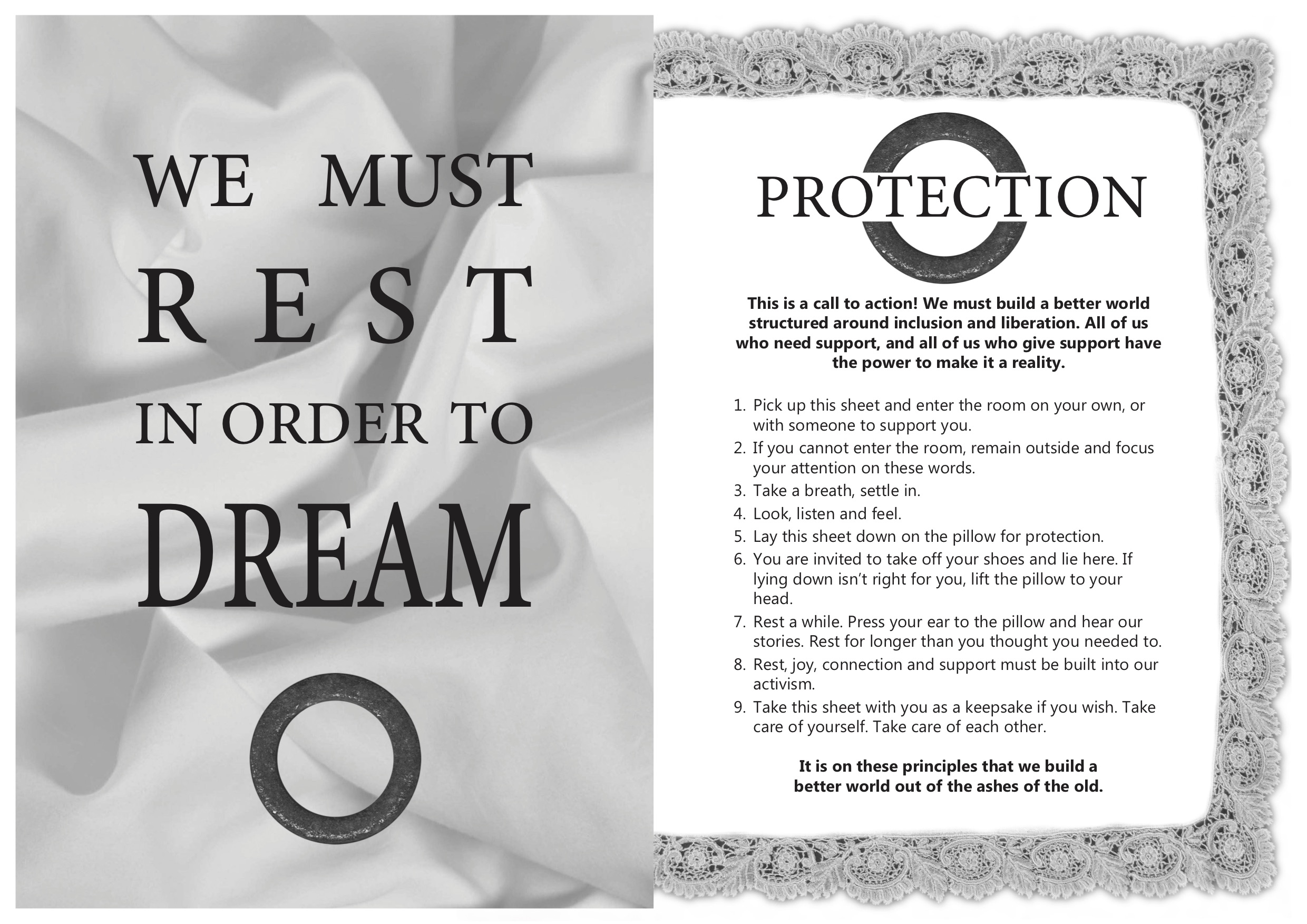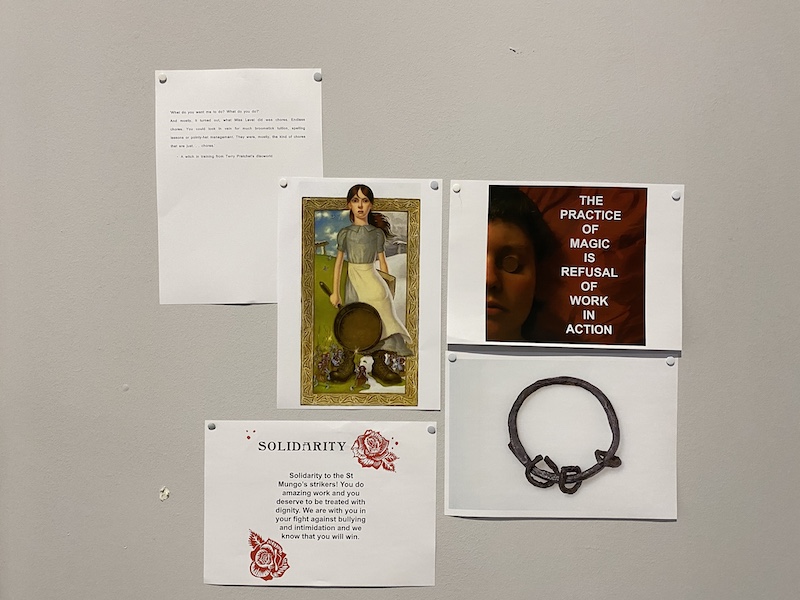END OF RESIDENCY WEBZINE
ABOUT
RESIDENTS
SEMINARS
TRACES
PHOTOS
Josie
Tothill

I am a Manchester based artist spanning a range of media including sculpture, video, performance and events. A need for change drives my work. Using values of folk tradition and the aesthetics of ruins, I examine the current moment and ask how we can make it history? What future do we want to build? I create playful materialist rituals for the overthrow of capitalism, I collaborate with communities, musicians and materials.
I am about to begin a weekly creative session with an autistic child who lives in a care home. I would like to use the residency as a framework to interrogate and explore my reflections and methods of work with this child, asking how to work honestly, collaboratively and respectfully.
For my day job, I am a care worker providing assistance with day-to-day living and mental health support. To care is to feel, it is an emotive word as well as a doing word. To be a carer, is to place a feeling at the centre of your labour. Care as an emotion, and labour as a power lie at the centre of organising alternative structures. We need a systematic change in social care. I believe this has to be collaborative between care workers and the people we work with and has to be led by disabled people.
I will investigate if there are any organisational parallels between how I work creatively with the child and how to organise for political change.
insta @josie_tothill please don't hesitate to be in touch!
All of us in the meeting have needs. Sometimes the need will be for patient understanding, sometimes for practical help, sometimes for challenge and encouragement; but we cannot be aware of each other’s needs unless we know each other. Although we may be busy we must take time to hear about the absent daughter, the examination result, the worries over a lease renewal, the revelation of an uplifting holiday, the joy of a new love. Every conversation with another Friend, every business meeting, every discussion group, and every meeting for worship can increase our loving and caring and our knowledge of each other.
Loving care is not something that those sound in mind and body ‘do’ for others but a process that binds us together. God has made us loving and the imparting of love to another satisfies something deep within us. It would be a mistake to assume that those with outwardly well-organised lives do not need assistance. Many apparently secure carers live close to despair within themselves. We all have our needs.
Careful listening is fundamental to helping each other; it goes beyond finding out about needs and becomes part of meeting them. Some would say that it is the single most useful thing that we can do. Those churches that have formal confession understand its value, but confession does not have to be formal to bring benefits. Speaking the unspeakable, admitting the shameful, to someone who can be trusted and who will accept you in love as you are, is enormously helpful.
Plain speaking is a longstanding Quaker testimony. It is not only that we hold a witness to the value of truth but also that straightforwardness saves us from many mistakes and much time wasted. On first acquaintance some Quakers can seem rather brusque; without the conventions of flattery and half-truths, we particularly need to make clear the steadfast love we have for one another.
Caring can take many forms. Some help will be beyond the resources of the local meeting, but it should not be beyond our resources to see when it is needed and to see that it is provided. Often it is what we are rather than anything we do which is of help to others. We should be wary of giving advice: a sympathetic ear, whilst a person finds their own way forward, will usually do more lasting good. Some people may not want to be helped, seeing our concern as an intrusion. Great sensitivity is called for.
The adults in a meeting have a shared responsibility for making a reality of our claim that the presence of children and young people is valued and that everybody’s needs and feelings matter. People vary in how comfortable they feel with silent worship; some children, like some adults, take naturally to its disciplines and joys; others have to work at it. Some meetings offer other forms of worship from time to time. In any case it is important that the needs of all age groups are considered when we plan our activities.
